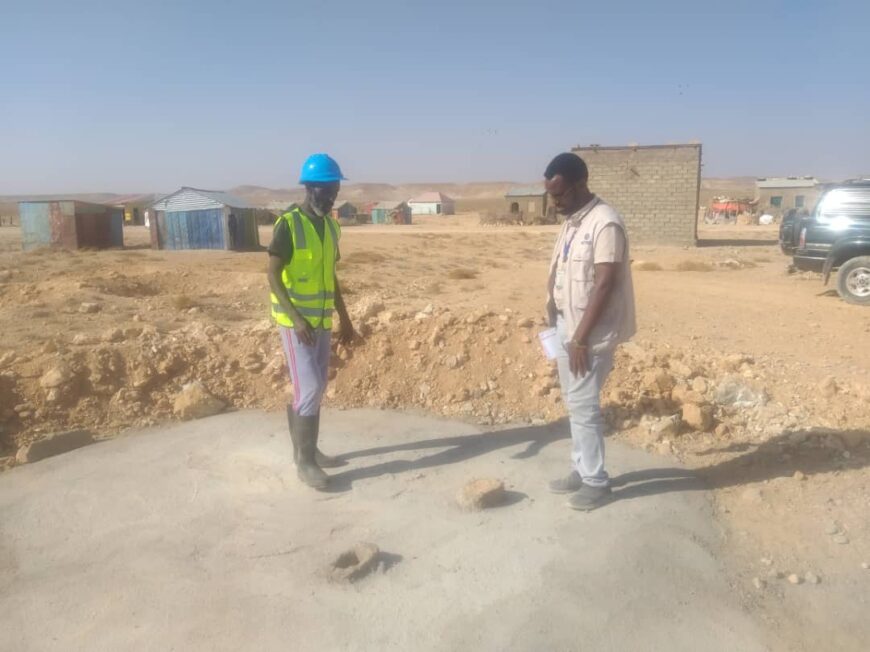Since 2017, ACTED has been working in the region of Sool & Sanaag. In these eastern regions of Somaliland, internal conflicts and recurrent drought have forced more than 200 000 people to flee their homes and settle in camps. These improvised camps require much work in terms of management and infrastructure, in order to ensure a dignified life to each and every one of the Internally Displaced Persons (IDPs).
With the financial support of USAID’s Bureau of Humanitarian Affairs (BHA), ACTED supported the displaced populations of Sool & Sanaag, notably by setting up maintenance committees to conduct rehabilitation of critical camp infrastructure.
Noah’s story: learning new skills in an Internally Displaced Persons’ camp
The committee members were selected in collaboration with local authorities, trained on technical skills, and remunerated for conducting their work. They were also equipped with tools, gloves and helmets. From December 2021 to March 2022, the committees conducted work in 20 IDP camps across Sool & Sanaag region. Among others, they made doors to secure the houses of IDPs, repaired shelters and rehabilitated water reservoirs and latrines.
Noah Mouse Noah (40 years old) and his family have been in Bendersame Camp for the last year and a half. They came to this place after having lost their cattle to the drought. He used to be a carpenter and was selected as a skilled worker to become a member of the site maintenance committee. He was trained on specific camp procedures and equipped by ACTED with construction material. With his team, he repaired communal latrines to enable a safe use by the population. He also built doors for twenty families living in the camp. “Initially, the shelter of the community households had no doors to protect them from theft, animals or other harm. Our work allowed the families to feel safe and sleep peacefully.” He also rehabilitated a water reservoir, which prevented animals from spoiling the water and helped reducing the spread of diseases from animal to man.

‘For me personally, the knowledge I got from the training and the maintenance work is an asset that I can use for my current and future life. When I received the training from ACTED and started working, I could finally have a source of income. Now I can buy water for my family, even though it is expensive here. I can also buy rice, flour and sugar for them, in addition to supporting other relatives who depend on the money I receive’’
In total, ACTED hired 40 people to work for the maintenance committees in 20 displacement sites across Sool and Sanaag regions. The locations were selected according to specific vulnerability criteria set with the local camp management committees. With the tools provided and the knowledge acquired, the committees will continue working for their communities.
“ACTED has been very helpful, giving special attention and keeping constant contact with us to exchange on the situation in the camp. In addition to setting up the committees, ACTED provided us with several much-needed items, including blankets, mosquito nets, kitchen sets and washing basins. They also gave training to ensure a good organization of the camp. I would like to thank all those who made these activities possible, and I hope that we can continue working together, as our camp still faces massive needs in terms of water, food and shelter.”
250 people benefitted from the Site Maintenance Committees
In total, ACTED hired 40 people to work for the maintenance committees in 20 displacement sites across Sool and Sanaag regions. The locations were selected according to specific vulnerability criteria set with the local camp management committees. With the tools provided and the knowledge acquired, the committees will continue working for their communities.
